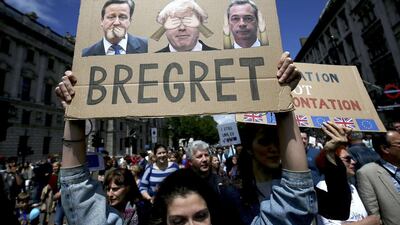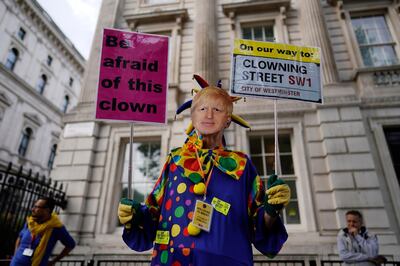The taxi driver was very friendly. He picked me up at Edinburgh's Waverley station and we discussed the violence in his native Kashmir. Then we talked about the book I had written on Brexit, which I was on my way to promote in Scotland. The driver talked wisely about how communities that are split – Britain over Brexit, Scotland over independence, Kashmir over whether it belongs with India or Pakistan – must somehow find ways to heal their divisions.
When we reached my destination, the Edinburgh International Book Festival, we continued talking with the meter still running – then, to my astonishment, the driver refused to take any payment. He said he enjoyed our conversation. So did I, and I walked into the book festival with a spring in my step, wishing all the world’s problems could be solved just as amicably with conversations between strangers.
Perhaps book festivals bring out what Abraham Lincoln called “the better angels of our nature”. They are certainly a growth industry. I’ve begun a festival tour to speak about my Brexit book, which will take me from big cities like Edinburgh, Belfast, Dublin, Leeds and London to the university cities of Cambridge and Oxford, and many destinations and small towns in between, all the way from Wigtown in Scotland to Rye and Folkestone in the southeast of England.
It is also an opportunity to explore my country – or rather, countries – travelling the length and breadth of Britain plus Ireland and even Gibraltar, where voters overwhelmingly voted to stay in the EU. Everywhere I have visited, there is a fear that the incompetence with which Brexit is being pursued by prime minister Boris Johnson's government will seriously disrupt lives, families and livelihoods.
Edinburgh, at least, is home turf. I went to school in this capital of the Enlightenment, and from schools and universities to law courts and religious organisations, it's a city which delights in reason, facts, medical expertise, literature, knowledge and science. In 2016 Edinburgh voted overwhelmingly to reject Brexit and remain in the European Union. All 32 of Scotland's electoral districts voted Remain. But many Scots say – sometimes vigorously – that since 2016, their voice has been ignored by an essentially English nationalist government in Westminster.
This resentment has brought about significant changes in the outlook of my old Scottish friends. Over coffee, one said the Brexit vote made him realise he had taken for granted his three concentric identities – Scottish, British, European. He realised that the identity he most cherished was European and he recounted how, for centuries, Edinburgh traded with a north German collective of merchant ports of northern Europe called the Hanseatic League, from Hamburg to Gdansk, Lubeck to Tallinn. For him, leaving the EU meant something in his culture and identity was lost, for no gain.
The conversation then turned to an even more divisive issue – Scottish independence. My friend’s family, like many others, had been split in the 2014 independence vote, when Scotland narrowly voted to stay in the United Kingdom.
“That’s changed,” he said, acknowledging that change comes slowly in Edinburgh. The city’s so-called New Town is 200 years old. It’s a conservative place and Brexit, my friend said, was a crazy leap in the dark most Scots do not like.
“Independence is now the safer, more conservative option,” he laughed, “compared to the Brexit revolution.”
That was just one conversation with one person, but I heard echoes of it elsewhere. In a festival theatre with 250 audience members, I took part in a discussion in which it was clear that most of the audience were – to use traditional Scottish dialect – “scunnered”, or sickened, by the political leadership in London. The following day a stranger who had been in that audience stopped me in the street to ask if Brexit could be stopped.
"Possibly," I said. "We have two months."
“We need to try,” he replied.
Before I left Scotland I walked, as I always do, through the magnificent gardens under Edinburgh castle, stopping at the Polish war memorial. Among my old Scottish schoolmates were boys with Polish names. Their parents and grandparents were refugees from the Nazis and the Soviets, and many fought bravely for their freedom and ours. Those great struggles for the soul of Europe in the 20th century led to the creation of an extraordinary alliance – the one now known as the European Union. The EU is far from perfect, but from the Kashmiri taxi driver to my old friend to the Scots in the literary festival audience, leaving the European Union against their will is something many Scottish people resist.
As I write this on the train heading south from Edinburgh, through the hilly border country between England and Scotland to my next book festival near London, I was struck by our history. For centuries, marauding armies of Scots and English invaded each other’s land across this lovely border country. Cattle and sheep rustlers plundered each other’s farms. The union of the Scottish and English monarchies in 1603 put an end to that, just as the European Union helped bring peace across this continent. The Scots I spoke to fear something worse than cattle thieves. They feel a predominantly English parliament is stealing the futures of their children. This feeling will become much stronger if by October 31, Brexit does occur.
Gavin Esler is a journalist, author and presenter



